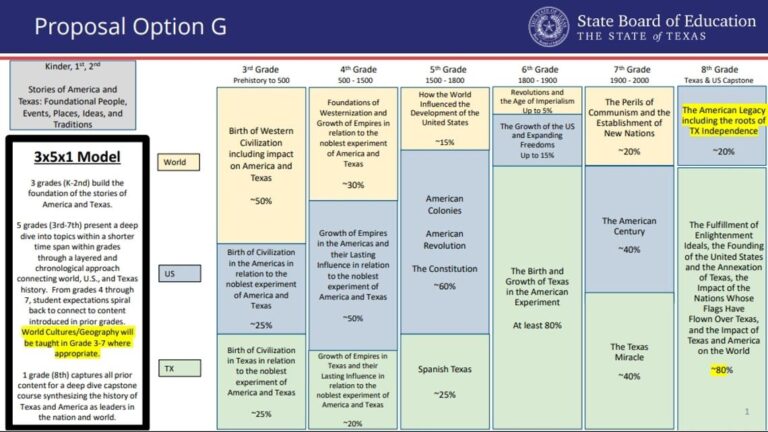Texas AFT Voices Strong Opposition to Proposed Changes in State History Curriculum
The Texas American Federation of Teachers (Texas AFT), a leading voice for educators in the state, has expressed deep reservations about the recent proposals to modify the history curriculum in Texas public schools. These suggested adjustments aim to reshape the educational framework and standards, but critics warn they may result in a limited and potentially skewed portrayal of historical events. Texas AFT stresses the necessity of maintaining a well-rounded and inclusive approach to history education that benefits both teachers and students.
Concerns Over Narrowed Historical Narratives and Exclusion of Key Perspectives
Texas AFT’s opposition centers on the risk that the proposed curriculum revisions could marginalize important historical narratives, particularly those involving civil rights and social justice movements. The union cautions that such omissions would deprive students of a full understanding of the diverse forces that have shaped Texas and the nation.
- Decreased focus on civil rights activism and social justice milestones
- Possible sidelining of minority contributions and voices in Texas and U.S. history
- Heightened emphasis on patriotic themes potentially overshadowing critical inquiry
| Issue | Likely Consequence |
|---|---|
| Civil Rights Movement Coverage | Lowered student awareness of social justice history |
| Minority Perspectives | Incomplete historical context and understanding |
| Patriotic Emphasis | Potentially limits critical thinking and balanced analysis |
Potential Educational Gaps Highlighted by Experts
Historians and educators alike have voiced apprehension that the proposed curriculum changes could oversimplify complex historical realities. By downplaying or excluding significant events and diverse viewpoints, the revisions risk undermining students’ ability to grasp the multifaceted nature of Texas’s history.
- Omission of contentious yet vital topics such as civil rights struggles and social justice efforts
- Presentation of history through a narrow ideological lens rather than objective facts
- Neglect of minority histories that are essential to understanding Texas’s cultural mosaic
| Historical Focus | Possible Impact |
|---|---|
| Civil Rights Era | Reduced emphasis on activism and legislative progress |
| Indigenous Histories | Diminished acknowledgment of Native American experiences and contributions |
| Immigration Narratives | Simplified stories lacking multicultural depth and nuance |
Educators Champion a More Inclusive and Critical Approach to History Education
Teachers and school leaders across Texas are advocating for a history curriculum that embraces complexity and diversity. They warn that the proposed changes could lead to a distorted or incomplete understanding of historical events, which may hinder students’ ability to critically engage with the past.
Proponents of a balanced curriculum emphasize the need to:
- Incorporate marginalized voices: Ensure that stories from underrepresented communities are integral to the curriculum.
- Present balanced narratives: Highlight both achievements and challenges within historical contexts without bias.
- Promote open dialogue: Encourage respectful discussions among students on complex and sometimes controversial topics.
| Focus Area | Expected Benefits |
|---|---|
| Comprehensive Content | Enhances students’ broad understanding of history |
| Critical Thinking | Develops analytical skills and nuanced perspectives |
| Equity and Representation | Ensures fair inclusion of diverse groups and histories |
Texas AFT Advocates for Inclusive Collaboration in Curriculum Design
Texas AFT calls for a transparent and cooperative process involving educators, historians, parents, and students to shape the history curriculum. The union stresses that such collaboration is vital to preserving academic rigor and ensuring that multiple viewpoints are represented fairly.
The union’s recommendations for a collaborative framework include:
- Active participation of experienced teachers in curriculum development committees
- Open and transparent processes for selecting textbooks and instructional materials
- Regular curriculum reviews that incorporate feedback from educators and community members
- Commitment to presenting complex historical events in ways that encourage critical thinking
| Stakeholder | Role in Curriculum Development |
|---|---|
| Educators | Offer practical classroom insights and pedagogical expertise |
| Historians | Ensure historical accuracy and depth |
| Parents | Reflect community values and expectations |
| Students | Provide feedback on engagement and comprehension |
Final Thoughts: Navigating the Future of History Education in Texas
The ongoing debate surrounding the revision of Texas’s history curriculum underscores the challenges of balancing diverse perspectives with educational integrity. As policymakers, educators, and communities continue to engage in this critical conversation, the outcome will significantly influence how future generations understand and interpret the past. Texas AFT’s advocacy highlights the importance of inclusivity, critical thinking, and collaboration in crafting a curriculum that truly reflects the state’s rich and varied history.




